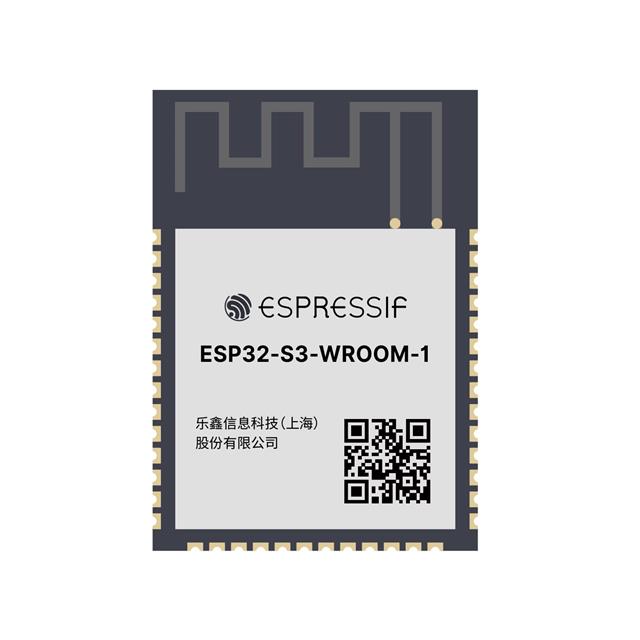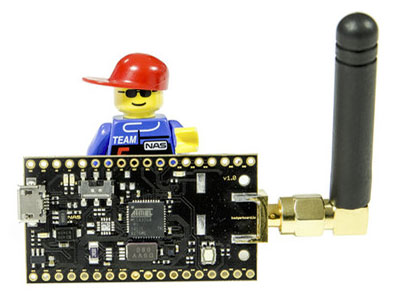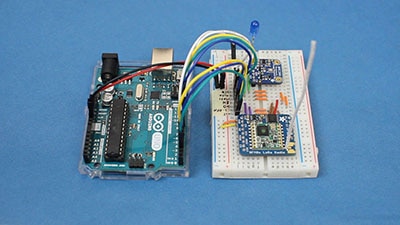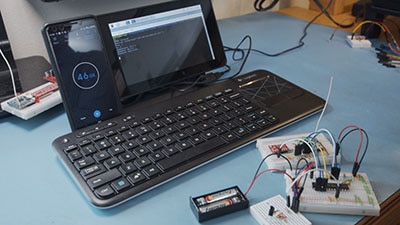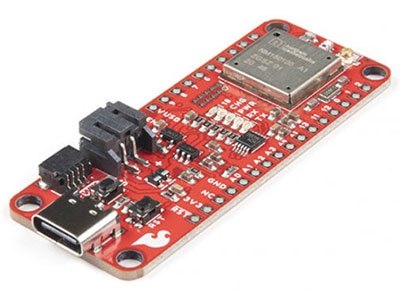Mesh-your world: Off-Grid Mesh Network with ESP32 & LoRa
2025-10-29 | By Rinme Tom
License: General Public License LoRa Arduino ESP32
Introduction
This project builds a compact, field-ready mesh-network node based on the ESP32-S3 microcontroller and the SX1262 LoRa transceiver, enabling off-grid wireless communication without cellular or WiFi infrastructure. The design integrates hardware, firmware, and deployment details to establish a true mesh network of nodes suited for outdoor, emergency, IoT, or remote-site use.
Key Features & Highlights
Custom PCB integrates ESP32-S3, SX1262 LoRa module, USB-C power, Li-ion battery charger, and supporting power management.
Long-range mesh network capability: hop-to-hop forwarding across nodes enables communication beyond the line-of-sight of a single link.
Off-grid capable: USB-C input, onboard Li-ion charger (LTC4054), and voltage regulation (ADP124) support battery-powered, portable operation.
Ready-to-source BOM: all major parts (ESP32-S3-WROOM-1, Wio SX1262, ADP124ACPZ-3.3-R7, LTC4054) listed with DigiKey part numbers.
Expandable GPIO headers for sensors/displays; optional 3D-printed enclosure aligned for field use.
Why It Matters
In many scenarios — remote hiking, field research, disaster-recovery zones, agriculture, IoT deployments in rural zones — there’s no reliable cellular or WiFi infrastructure. This design empowers engineers and makers to deploy a self-sustaining wireless mesh where each node relays messages autonomously, thereby eliminating single-point-of-failure networks. The open-source firmware Meshtastic, combined with a fully integrated board, gives cost-efficient control versus off-the-shelf proprietary devices.
Hardware Summary
MCU: ESP32-S3-WROOM-1 (dual core, WiFi + Bluetooth, ample flash/PSRAM)
Radio: Wio SX1262 LoRa transceiver module (pre-certified RF front-end)
Power: LTC4054 charger for Li-ion battery, ADP124 3.3 V LDO regulator, USB-C port with ESD/TVS protection
Interfaces: Status LEDs, reset/boot tactile switches, battery-voltage monitoring via ADC, GPIO expansion header for sensors/OLED, JST battery connector
PCB and enclosure: The board is optimized for field deployment, with layout considerations for RF performance and mechanical robustness.
Firmware & Deployment Workflow
The board ships with pre-configured Meshtastic firmware ready for the ESP32-S3 + SX1262 combination. Setup steps include: cloning the GitHub repo, building via PlatformIO, flashing the firmware, pairing via Bluetooth or USB, configuring region/band/channel key, and testing mesh communications. The node appears in the Meshtastic app and can also be configured through the Meshtastic Web Client.
Use-Case Scenarios
Outdoor adventure groups: stay connected in remote terrain without relying on cell networks.
Emergency/disaster zones: quickly deploy a resilient mesh when infrastructure is damaged.
Agricultural/remote IoT: sensor nodes relay data across fields or remote assets.
Research/field teams: maintain communication among team members and equipment in off-grid environments.
Conclusion
This DIY ESP32 Meshtastic node delivers a strong foundation for engineers and makers seeking to implement off-grid mesh networking with full hardware and firmware transparency. With cost-effective sourcing, compact integration, and extensible design, it suits deployment scenarios where resilience, autonomy, and customisation matter. Use this board as your building block to launch a private mesh network tailored to your application.







